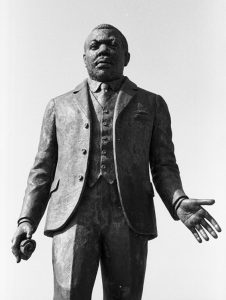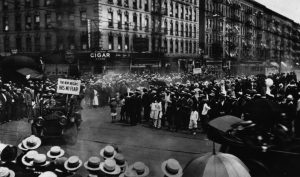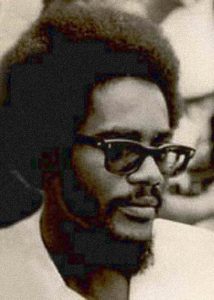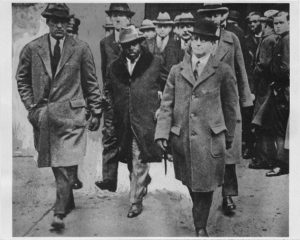Marcus Garvey
Marcus Garvey: The time has come for us to proclaim our freedom
05 April 1919
IT IS difficult to overstate the threat that Marcus Garvey and his United Negro Improvement Association posed to colonial powers and the status quo in the USA in the years following the First World War. As Garvey observes in this speech, black Americans fought for Europe’s freedom: now they were ready to fight for Africa’s freedom.
Marcus Garvey: If you believe the Negro has a soul
18 August 1921
“THE GREAT problem of the Negro for the last 500 years,” Marcus Garvey observes in this rousing speech, “has been that of disunity. No one or no organization ever succeeded in uniting the Negro race. But within the last four years, the Universal Negro Improvement Association has worked wonders. It is bringing together in one fold four million organized Negroes who are scattered in all parts of the world.”
Walter Rodney: The Groundings with my Brothers
18 October 1968
IN THIS excerpt from a speech given in Montréal following his banning by the Jamaican authorities a few days earlier, Walter Rodney, the Guyanese-born academic and activist, warns against being seduced by the myth of a harmonious multi-racial society. He describes how he got real knowledge and understanding from Rastafari, the least regarded, most despised section of society. Finally, Rodney stresses the importance of the black intellectual attaching himself to the activity of the black masses.
Marcus Garvey: Gentlemen, will you let the tiger loose?
17 June 1923
IN JUNE 1923, Marcus Garvey was convicted on federal charges of mail fraud in connection with the sale of stock in the Universal Negro Improvement Association’s Black Star Line. Sentenced to five years imprisonment, Garvey delivered his last address while on bail pending an appeal before a crowd at Liberty Hall in New York City. It is a wonderful piece of oratory and ends with this defiant assertion: “I repeat that if they think they can stamp out the souls of 400,000,000 black men, they make a tremendous and terrible mistake. We are no longer dogs; we are no longer peons; we are no longer serfs—we are men.”




